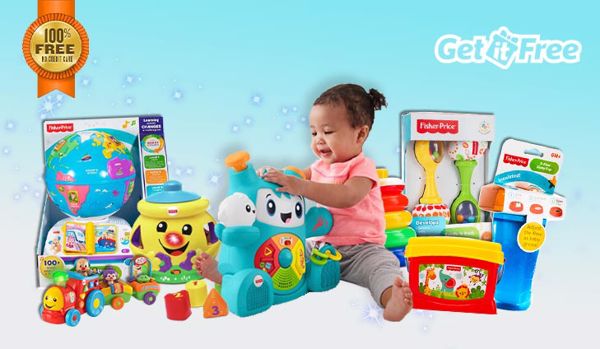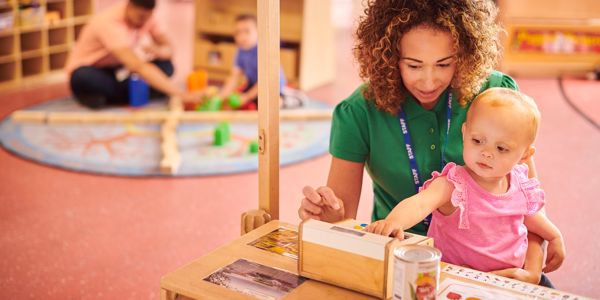While a stuffy nose may not seem like a big deal, it’s the moment many parents of daycare-attending children dread. The dilemma of when it is (and isn’t) acceptable to send your child to daycare if they are feeling under the weather is a debate families struggle with everywhere. This is especially the case if you, yourself, will need to take the day off of work to attend to your sick child, lose a day’s pay, use up a sick day you may need later, and have to continue paying full daycare fees in the meantime. This is not only annoying, but it can be expensive, and sometimes unsustainable if your child frequently falls ill.
No one wants their sick child to be miserable, or even get sicker by not resting when they need to, but with financial strains, it can be tempting to pretend you didn’t notice those subtle symptoms of sickness (especially if they’re mild!) and send your child on their way. However, when exactly is it permissible to take your ill child to daycare, and when should you go ahead and keep them home?
Illness Spreading in Daycares
Germs and daycare are two things that seemingly go hand in hand. This is, in large part, because daycares are filled with large amounts of young children coming into contact with all different environments without having fully grasped the concept of personal hygiene. Even with hand washing before meals and after using the restroom, small children are notorious for putting things in their mouths, picking their noses, and coughing or sneezing in each other’s faces.
There’s only so much that can be done to prevent the spreading of sickness in a daycare environment, outside of establishing a firm sick policy to keep contagious illnesses as completely away from the other children as possible. A sick policy can relieve some of the dilemma parents and guardians face when making the tough “should I keep them home” call, but if your child’s daycare doesn’t seem to have a sick policy or if it is relatively vague, you may still be wrestling with what to do.
When to Keep Sick Children Home
There are a few symptoms that have a consensus of meaning a child is too sick to attend school or daycare. If your child is experiencing any of the following symptoms, you can confidently assume they have no business being around other people until they are feeling better. This is both to keep your child from spreading their illness as well as to allow your child the optimal opportunity to recover fully and comfortably at home.
- Fever: If your child has an active fever (a temperature of 95.6 F or higher), even if it is responding to medication, you should keep them home. Children should be fever-free (without the aid of fever reducers) for a minimum of 24 hours before they return to daycare.
- Vomiting: Your child should be vomit-free for a minimum of 24 hours before returning to daycare if they have vomited only once, and at least 48 hours if they have vomiting and/or diarrhea multiple times. It’s possible that vomiting can be caused by noncontagious factors such as food poisoning, eating too much, or motion sickness, but where vomiting is concerned it is better to be safe than sorry. Don’t assume your child throwing up was a one-off and send them to daycare only for the daycare workers to be left calling you to come get them, cleaning up a mess where they and other children can easily be infected. Note that stomach viruses can be contagious for a few days even after you have recovered and are symptom-free. The virus may be found in stool for two or more weeks afterward, which caregivers will need to be cautious of.
- Diarrhea: Like the concerns with vomiting, diarrhea can be a symptom of the same kinds of stomach viruses that might prompt your child to throw up. Persistent diarrhea should be considered with the same caution as vomiting, waiting 48 hours after the end of symptoms to return to daycare.
- Cough: Coughs can linger around a painfully long time, but there is a big difference between a sporadic dry cough and an active, productive cough. If your child is actively coughing regularly, especially if it sounds wet, keep them home. Coughs are an effective way to spread illness and an active cough most likely means your child is actively fighting whatever has made them sick. If a cough is dry and irregular, you can use your best judgment when to send them back.
- Runny nose: Like coughs, runny noses can linger, or even be triggered by things such as allergies and not be directly illness-related at all. A good rule of thumb is to pay attention to the color and amount of mucus your child is having. Clear watery mucus is less of a concern than thick green mucus for instance.
- Sore throat: Unfortunately, sore throats tend to occur at the beginning of an illness, so if your child is complaining that their throat hurts, you can assume more symptoms are likely to follow. While not always explicitly listed in sick policies, sore throats are a symptom you shouldn’t ignore and can signal something more. (A sore throat can also occur with strep throat, which is highly contagious and uncomfortable but can be treated relatively quickly with antibiotics. It’s better to diagnose and treat your child quickly so they can return to daycare rather than get so sick that they require a longer recovery time.)
You can refer to Care’s page on when to keep your child home from daycare – and for how long for a more detailed breakdown of symptoms and how to approach them.
Sending a Child to Daycare With Mild Illness
Even if you feel comfortable sending your child to daycare and they aren’t breaking any overt sick policy guidelines, there are a few considerations you can make to keep the wellbeing of the caregivers and other children in mind if you are knowingly sending a sick child to daycare.
- Communicate: Be upfront and honest with caregivers about your child’s health and any symptoms they should be aware of so that they can watch out for worsening symptoms and take necessary precautions as they are able, to avoid spreading your child’s illness to other children. (Such as taking extra care to wash hands after diaper changes, or keeping an eye to be sure your child isn’t coughing directly on other children.) They can also give your child ample opportunity to take it easy so they can continue to heal and recover.
- Provide resources: If your child has a runny nose, even if you are sure it’s due to allergies and not illness, consider providing the daycare with additional tissues. If your child has been ill with a stomach virus, maybe send them in with an extra bottle of hand sanitizer or a personal water bottle so they aren’t sharing a water fountain with the other children. A little extra thought and effort, even if you aren’t able to keep them home, can mean a lot and make a difference in whether other families are impacted by the same illness.
- Have a backup plan: If a child has been feeling unwell, they may not be quite ready to go back to the full swing of things. Have a plan in place in case your child’s daycare calls and says they need to be picked up, so you aren’t left scrambling to pick up your sick child when you’re supposed to be back at work. This could mean communicating with your employer so they know you may have to leave unexpectedly, or arranging for a friend or family member to be “on-call” to pick your child up if needed.
No one likes to be sick, but it’s a difficult thing to avoid and a reality we all face at one time or another. Taking the time to ensure your child is recovered and practicing healthy habits can keep your child from feeling run down and less likely to catch another illness. It also means that other children are less likely to be exposed to germs from your child and you may be saving another family the stress of scrambling to provide (and pay for) child care, which is something any parent will appreciate.







